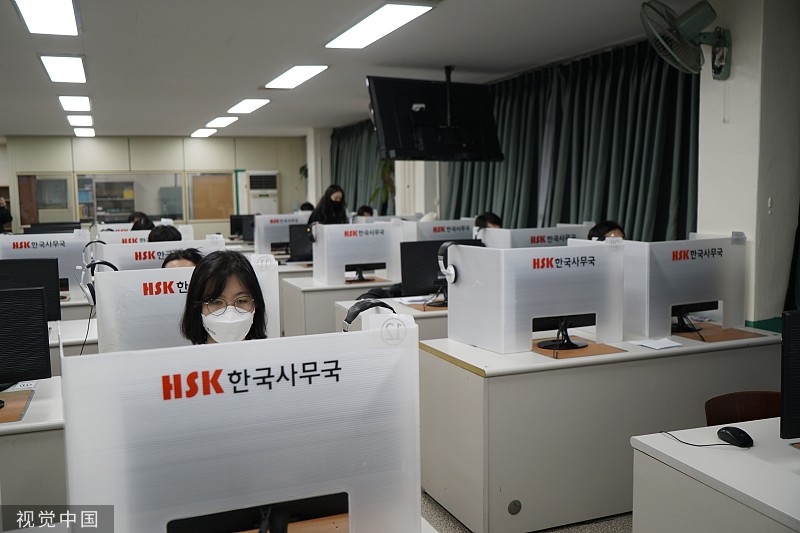
HSK, a Chinese language proficiency test, will officially host its first test for high-level non-native speakers on Nov 26, 2022. (Photo: VCG)
The Hanyu Shuiping Kaoshi, or HSK, a Chinese language proficiency test, will officially host its first test for high-level non-native speakers on Nov 26, said the Center for Language Education and Cooperation, the test's developer.
The new test criteria, based on the Standard for Chinese Proficiency Grading Standards for International Chinese Language Education adopted last year, ranks advanced test takers into three levels, from seven to nine.
The new test includes 98 questions gauging students' language skills in the categories of listening, speaking, reading, writing and translation.
It is designed for international students pursuing postgraduate studies, students majoring in Chinese language studies outside of China, and non-native speakers using Chinese for academic research and economic, cultural and scientific communication.
To reach HSK level seven, test takers should have good skills in Chinese listening, speaking, reading and writing and preliminary skills in specialized interpreting and translation, and be able to adequately communicate regarding relatively extensive and high-level topics.
The highest HSK level, level nine, requires excellent skills in Chinese listening, speaking, reading, writing and specialized interpreting and translation, and test takers must be able to use various skills comprehensively to communicate in Chinese in a standard, fluent and appropriate way on a wide range of topics in a variety of contexts.
The center said that HSK levels one through six will not change for the time being, and the validity, content, vocabulary and form of the six levels for the test will remain the same.
A total of 240,000 students from more than 140 countries took part in the HSK tests in the first half of this year, up almost 10 percent from the same period last year.
There are 1,302 HSK test centers in 161 countries and more than 70 percent of the centers also offer online tests.
The Ministry of Education said the Chinese language has been incorporated into the national education systems of more than 76 countries and over 25 million people are learning Chinese outside of China.
Lee Jae-young, a postgraduate student from South Korea at Peking University's Yenching Academy, said he started to take the HSK test in middle school and his Chinese language proficiency has improved over the years.
Lee passed the level-six HSK test before coming to China for his undergraduate studies in 2016, and he will consider taking the new high-level test to prove his fluency in the language, he said, adding that the HSK is the most authoritative Chinese language proficiency test.


